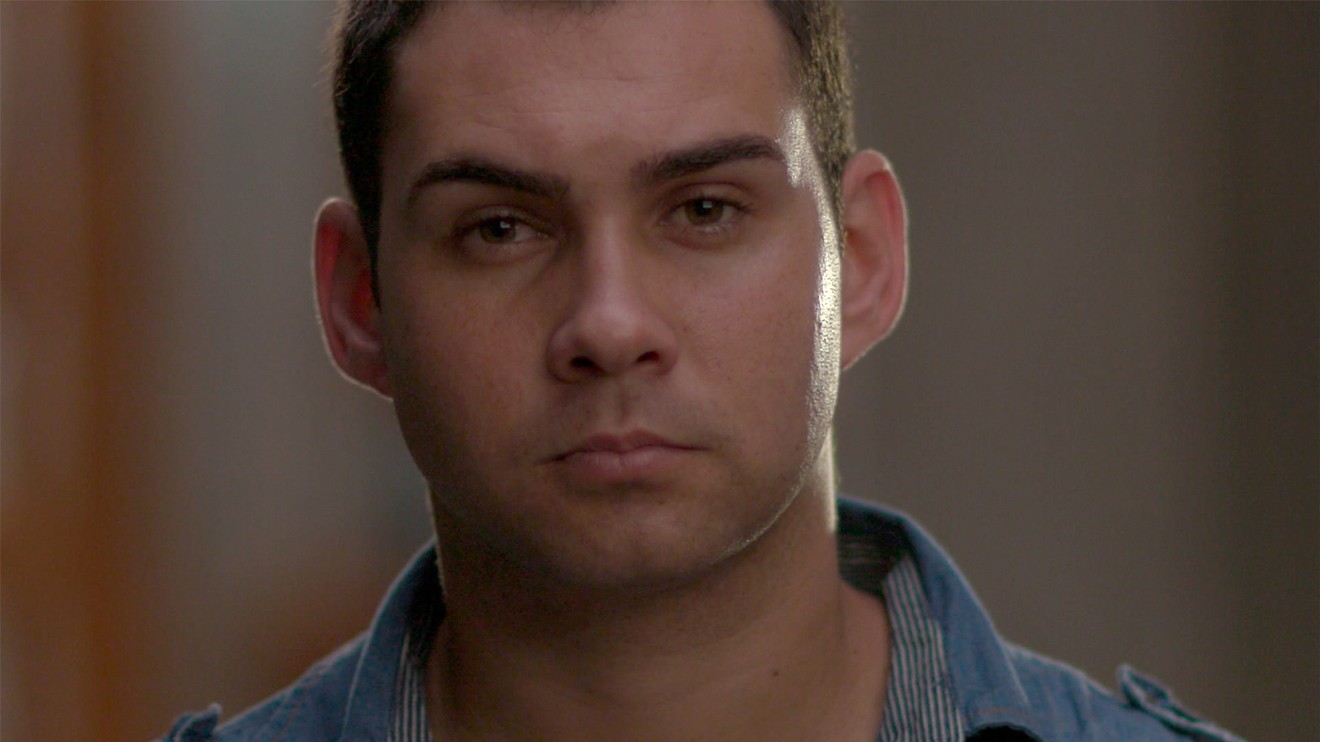The documentary Elián posits the story of 5-year-old Elián González, who was rescued off the coast of South Florida in 1999 after attempting to leave Cuba with his mother (who drowned) — along with its aftermath — as the birth of the 24-hour news cycle. More striking here, though, is how the story, in vintage clips, suggests the genesis of reality TV. We watch strangers cry and faint as they carry signs and chant for Elián to stay in the United States. González's cousin Marisleysis, who cared for the boy during his time in Miami, launches an on-camera tirade against the boy's father, Juan Miguel, because he wanted Elián back with him in Cuba.
Elián appears dazed in the old footage. No one close to the boy seemed to understand that a 5-year-old who had just lost his mother, and nearly died himself, might need his father and some therapy more than relentless publicity and trips to Walt Disney World.
The film shows some of what the news reports missed. People whom Miami’s right-wing Cuban-American community painted as villains seem frailer than I remembered: Even when she clasps her hands together, Attorney General Janet Reno can't stop the tremor of the Parkinson's disease that eventually would kill her. And Fidel Castro is more like an ailing, argumentative, long-winded grandfather here than he is an all-powerful nemesis.
We see "fisherman" (actually a housecleaner) Donato Dalrymple, who "rescued" Elián (Dalrymple's cousin was the one who got the boy out of the water), in close proximity to the González family, trying to become something like the first TV reality star. (Survivor would debut in May 2000.) In one shot, he says his name and then eagerly asks reporters, "You want me to spell it?" Dalrymple did achieve a kind of fame: In the Pulitzer Prize-winning photo of the raid on the González household, he is the one holding the boy.
The film assumes a familiarity with the story that most of us don’t have, leaving out crucial details: Marisleysis (21 at the time) strongly implied to reporters that the González household had guns and would use them to keep Elián. So the government sending heavily armed agents to the raid seems more like common sense than it does a Big Brother scenario.
The same Cuban-American organizations that had protested softened after the raid to become part of the process that improved relations between Cuba and the States during the Obama administration. But the main characters are resolute. Marisleysis says she won't go to Cuba (unrestricted travel from the United States was restored in 2016) to visit Elián because to do so would be a "betrayal" to his mother, a woman she never met or communicated with. The now 23-year-old Elián tells us he's not religious, but if he were, he would worship Fidel Castro.
The story continues to elicit strong emotion: After a Tribeca screening, two women loudly argued about whether Elián should have stayed. Meanwhile, Elián, still a celebrity in Cuba, might pursue a political career there. We see the resilience of the adult Elián when he takes a swim near a Cuban beach. After all he endured, he isn’t afraid of the water.
[
{
"name": "Air - MediumRectangle - Inline Content - Mobile Display Size",
"component": "19274298",
"insertPoint": "2",
"requiredCountToDisplay": "2"
},{
"name": "Editor Picks",
"component": "17482312",
"insertPoint": "4",
"requiredCountToDisplay": "1"
},{
"name": "Inline Links",
"component": "18711090",
"insertPoint": "8th",
"startingPoint": 8,
"requiredCountToDisplay": "7",
"maxInsertions": 25
},{
"name": "Air - MediumRectangle - Combo - Inline Content",
"component": "17482310",
"insertPoint": "8th",
"startingPoint": 8,
"requiredCountToDisplay": "7",
"maxInsertions": 25
},{
"name": "Inline Links",
"component": "18711090",
"insertPoint": "8th",
"startingPoint": 12,
"requiredCountToDisplay": "11",
"maxInsertions": 25
},{
"name": "Air - Leaderboard Tower - Combo - Inline Content",
"component": "17482313",
"insertPoint": "8th",
"startingPoint": 12,
"requiredCountToDisplay": "11",
"maxInsertions": 25
}
]











